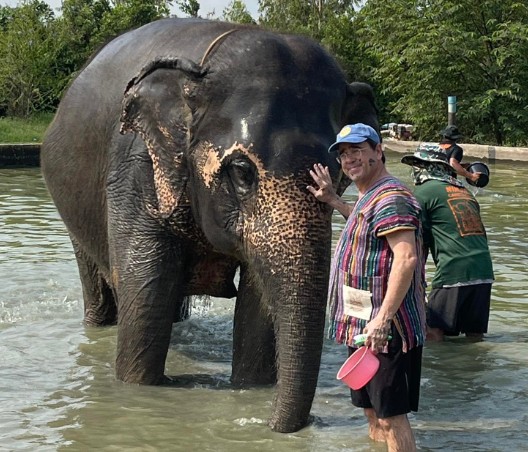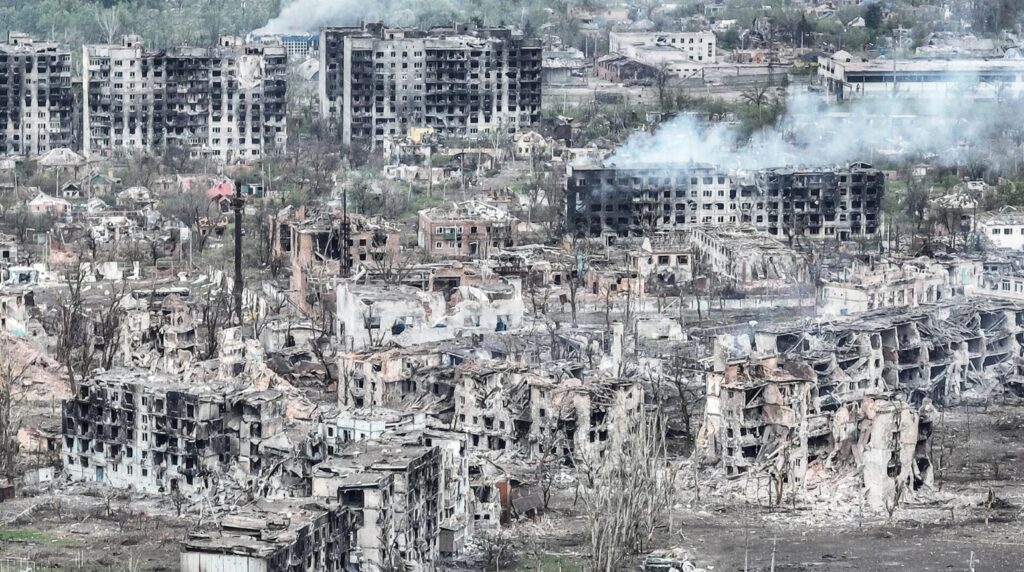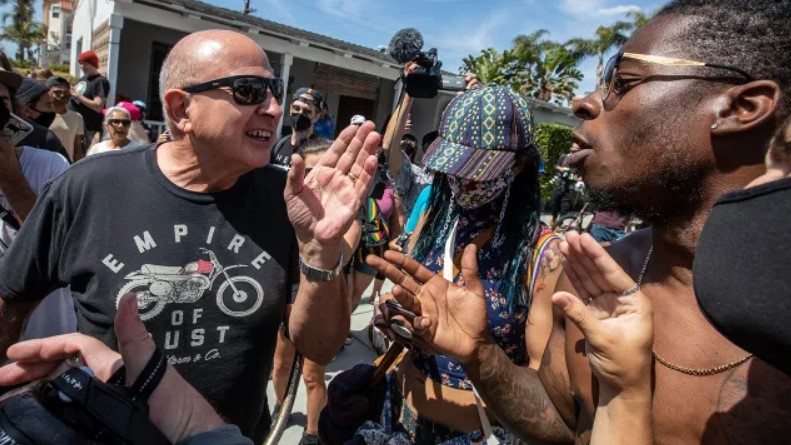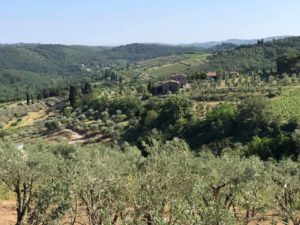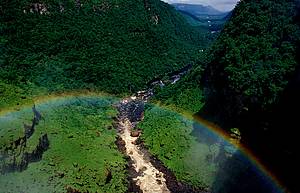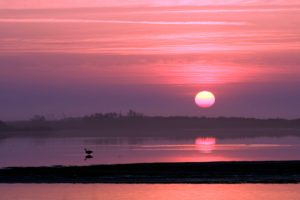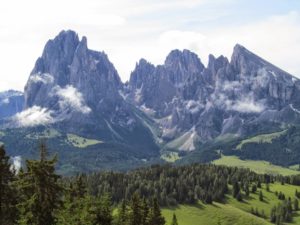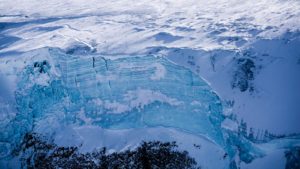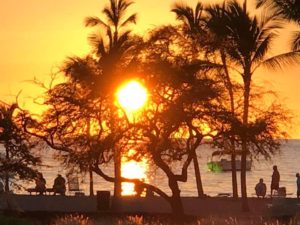SELF Named a Winner in Ashoka’s Changemakers Challenge


The Solar Electric Light Fund (SELF) has been announced as one of three winners in the Women | Tools | Technology Challenge sponsored by Ashoka’s Changemakers and ExxonMobil in partnership with the International Center for Research on Women (ICRW). Other winning entries were submitted by Bicycling Empowerment Network Namibia, Namibia, and Lua Nova Association, Brazil. The winners were selected from 268 project entries from 67 different countries in Africa, Asia, Latin America and the Middle East.
“It is inspiring to see such a wide range of innovative solutions catalyzing women’s economic advancement through technology around the world,” said Diana Wells, Ashoka’s Changemakers’ president. “We are thrilled to have received so many worthwhile ideas through this Challenge, and we are honored to be able to support the groundbreaking work being done by the winning innovators.”
SELF’s Solar Market Garden (SMG) project in Benin, West Africa is changing women’s lives in a variety of ways. Without access to an electric grid or municipal water infrastructure, women and girls in the villages of Bessassi and Dunkassa previously relied on carrying water by hand—sometimes over great distances—to grow their food, a process that consumed many valuable hours of labor each day. Each farmer’s plot was small and produced an inadequate supply to support a family’s nutritional needs. SELF partnered with the Niger-based International Crops Research Institute for the Semi-Arid Tropics (ICRISAT) to devise the marriage of solar-powered water pumps with highly efficient drip irrigation tubes, delivering water and fertilizer directly to plants even during the six-month dry season.
The SMGs allow women farmers to cultivate larger plots and grow crops year round, breaking the cycle of starvation
and malnutrition that accompanied traditional rainfall patterns in the Kalalé District. The public was invited to vote online for the three best solutions from a group of 10 finalists previously selected by an expert panel of judges. The Challenge criteria included excelling in the areas of innovation,social impact and sustainability.

“The innovative concepts from the Challenge will make significant improvements in the lives of women
n developing countries, allowing them to become key economic players in their communities and better provide for their families,” said Suzanne McCarron, president of the ExxonMobil Foundation. “We look forward to helping these innovators gain traction for their ideas so they can ultimately reach more people with their Challenge solutions.”
Robert Freling, SELF’s executive director, said: “The cash prize will help us provide more women with training in advanced agricultural techniques through ICRISAT. Using a ‘train the trainer’ approach, we’ll be able to leverage the prize into greater training for all the women in the three farming collectives and help them continue to reduce labor requirements, improve nutritional yield, and increase crop size. We’re also very excited about the recognition that comes with this award. Ashoka’s Changemakers’ tremendous renown will help us both elevate the visibility and increase the credibility of this project as we seek to raise the funds necessary to take it to scale and develop its commercial viability.”
“These innovations meet women where they live. They are practical, and they will be catalytic in addressing the demands women have in their home life, in their work life and in their community life,” said Anju Malhotra, vice president of research, impact and innovation at the International Center for Research on Women. “We’re excited to see how these creative ideas will trigger generations of change for women and economies. This is a teachable moment for the world.”
About the Project
For the first time, women farmers in the rural villages of Bessassi and Dunkassa, in northern Benin, are able to grow vegetables and fruits during the six month dry season, improving food security and nutrition for themselves and their families. Farmers are also increasing their income by selling excess crops in the market. Now entering its third year, SELF’s Solar Market Garden project has proved that solar energy can provide long term solutions to hunger, malnutrition and poverty in developing nations.
Achievements
At Stanford University, the Program on Food Security and the Enironment (FSE) conducted an economic and environmental assessment of our multi-sectoral intervention in Benin, beginning with the pilot phase. FSE published its findings in the Proceedings of the National Academy of Sciences in January 2010. Researchers found that income and nutrition have improved significantly for women and their families since SELF installed three solar irrigation systems in 2007. The study also concluded that SELF’s Solar Market Garden is cost-effective and environmentally sustainable. The systems should pay for themselves in approximately 2.3 years; and they are durable, emissions-free, and more economical over time compared with gasoline- or diesel-powered water pumps.
Background

The Kalalé District of Benin is a poor, dry region in the northern part of the country with approximately 100,000 people – none of whom have access to the electric grid. The economy, as in most rural districts, is mainly based on agriculture with more than 95% of the population involved with farming. Despite its great potential, crop production in Kalalé remains weak and easily influenced by natural conditions. There is precious little rainfall during the six-month dry season that runs from November through April each year.
During the dry season, the land of Kalalé is parched and its people are hungry. Malnutrition is widespread, as evidenced by the many children with distended bellies – a telltale sign of kwashiorkor, a condition caused largely by a lack of protein and micronutrients. The most pressing challenge for all the people of Kalalé is having enough food to eat.
Objectives
SELF’s involvement in Benin began in 2006 when we were first contacted by Dr. Mamoudou Setamou, a native of Kalalé who had received a Ph.D. in agricultural entomology from the University of Hanover in Germany. Mamoudou, now a Professor at Texas A&M University, had recently participated in a Kalalé district council meeting to explore options for electrifying the region’s villages since the national grid would not be extended to this remote part of Benin anytime in the forseeable future.

Believing that solar might answer the needs of his people, Mamoudou turned to SELF for help. Over the next few months, we put together a plan to generate solar electricity for a wide range of end-uses – including schools, health clinics, water pumping systems, street lighting, and wireless Internet access – in each of the 44 villages that comprise Kalalé District.
In terms of priority, however, an on-the-ground needs assessment revealed that the first concern amoung the local communities was food security: to find a way to overcome the endemic lack of water and agricultural produce that comdemns the people of Kalalé to an endless cycle of poverty and poor health.
Solution

To address the problem, SELF approached Professor Dov Pasternak, at the time a leading drip irrigation expert with the International Crops Research Institute for the Semi-Arid Tropics (ICRASAT). Pasternak had developed the “Africa Market Garden” – a simple but highly effective method of using drip irrigation to grow high-value fruits and vegetables on small plots of arid land in the Sahel region of Africa.
Prior to working with SELF, Pasternak used diesel generators to power the water pumps used in his drip irrigation systems. We proposed solar as a more viable alternative, both economically and environmentally. (In a SELF white paper, it is shown that the payback period for solar pumping – as compared with diesel – can be less than two years, and that’s at today’s diesel prices which are going up , and solar prices which are going down.)
Finally, in November 2007 SELF partnered with Association pour le Developpement conomique Social et Culturel de Kalalé (ADESCA) to launch a remarkable pilot project, installing an innovative solar-powered drip irrigation system to pump water for food crops. SELF engineers developed a 2.1kW solar electric power supply that provides 100% of the energy for the pumps. SELF secured seed funding for the project by emerging as a winner in the 2006 Global Development Marketplace competition, sponsored by the World Bank.
 Bob Freling, SELF’s executive director, returned to Dunkassa and Bessassi with a French television crew in June 2009 to spend time with the people and film their progress. Bob immediately noticed a difference in the women, who have filled out since his last visit. Not only are the women better fed, but so are the children and the rest of the villagers who now have year-round access to a steady supply of highly nutritious fruits and vegetables.
Bob Freling, SELF’s executive director, returned to Dunkassa and Bessassi with a French television crew in June 2009 to spend time with the people and film their progress. Bob immediately noticed a difference in the women, who have filled out since his last visit. Not only are the women better fed, but so are the children and the rest of the villagers who now have year-round access to a steady supply of highly nutritious fruits and vegetables.
What’s more, the women are earning an extra $7.50 per week from the sale of fresh produce at the local market. Bob was there on market day, and was delighted to see the women march proudly into town with their baskets filled to the brim with leafy green vegetables.
And, the women are already starting to think about other types of income-generating schemes that can be launched in the villages. It appears their entrpreneurial spirit has been kindled!
Future Needs
 SELF’s solar installation has made a dramatic impact on the health and quality of life for the people of Bessassi and Dunkassa. But there is much more work to be done. While the immediate next step is to drill wells in each of these two villages – ensuring access to clean, safe drinking water – there are 42 more villages anxiously waiting for solar-powered drip irrigation. SELF conducted site assessments in August 2009 and the wells will be drilled December 2009, with solar-powered pumps scheduled to be installed in February 2010. But we still need to raise money for the irrigation systems.
SELF’s solar installation has made a dramatic impact on the health and quality of life for the people of Bessassi and Dunkassa. But there is much more work to be done. While the immediate next step is to drill wells in each of these two villages – ensuring access to clean, safe drinking water – there are 42 more villages anxiously waiting for solar-powered drip irrigation. SELF conducted site assessments in August 2009 and the wells will be drilled December 2009, with solar-powered pumps scheduled to be installed in February 2010. But we still need to raise money for the irrigation systems.
Last, but certainly not least, SELF has promised to provide whole-village solar electric systems to each of the rural farming communities in Kalalé. By bringing solar energy to power their schools, homes, health clinics, street lights and microenterprise centers, we can empower Beninese women and their families to lift themselves out of poverty, ensuring a brighter future for all.
Please help us continue empowering the women of Africa, and bring hope to them and their children.
For additional project details contact info@self.org.
